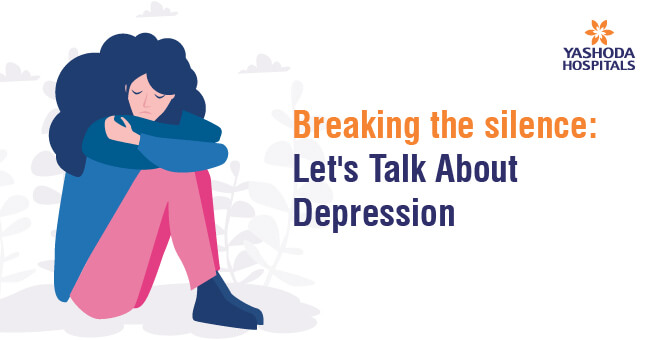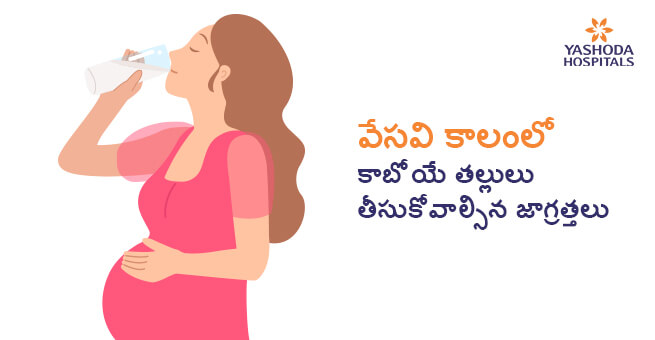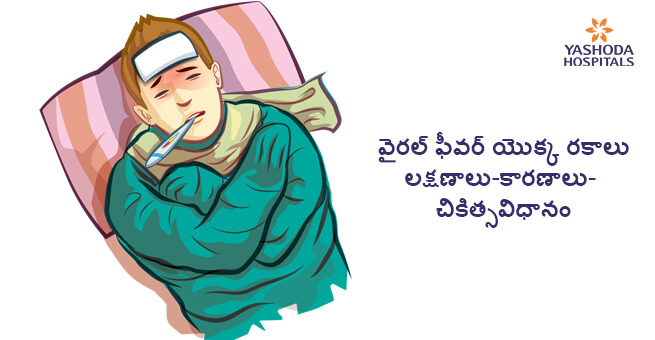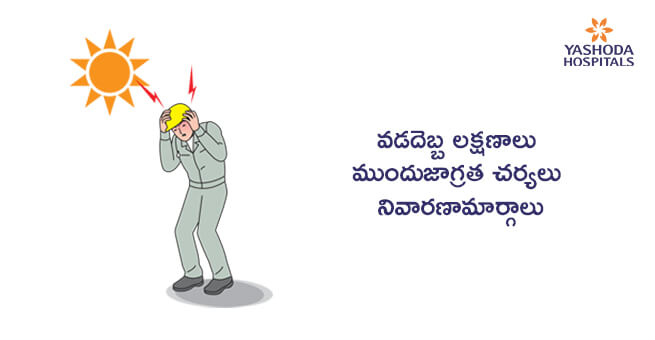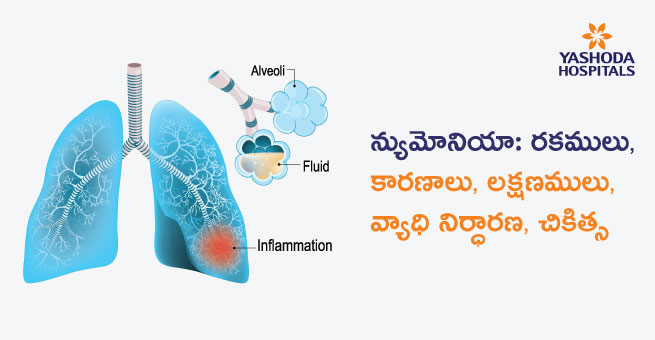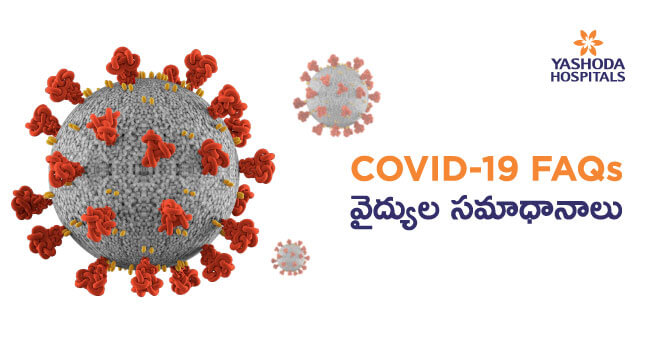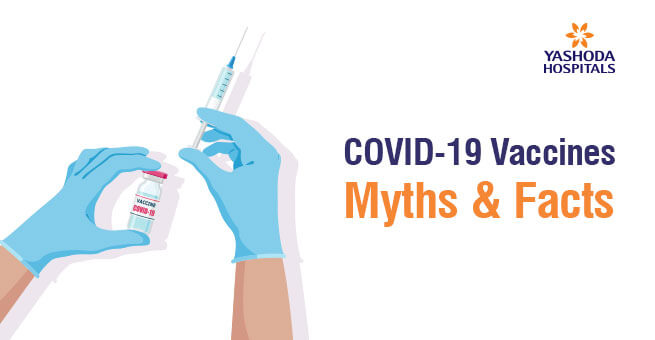All about Viral Fever- Don’t miss out

What is viral fever?
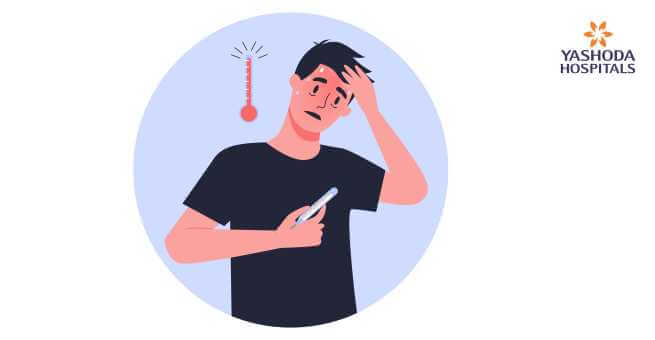
Viral fever is a collective term used for fever originating from a variety of viral infections. The average human body temperature is approximately 98.4°F (37.1°C). Any degree of temperature above this average value is usually considered as fever. Viral fever can be low-grade (below 100°F) in a few infections, and it can be high-grade (above 100°F) in viral infections such as Dengue, etc.
Viral fever is usually acute and more common during season changes, e.g. Monsoon. Viral fever duration for most viral infections is 3-5 days; however, in a few of the viral infections, fever can last up to 14 days.
Viral fever is generally not considered a disease or illness but is a result/indication of an underlying viral infection. It is also common in kids and people with weak immunity—fever results from the fight your body has with the viral antigens and indicates viral infection. At times, viral fever can go undiagnosed, and it could develop into severe complications. It should not be overlooked if you have a fever; you should seek medical care to diagnose and identify the infection. We recommend you consult our team of medical experts if you experience fever.
What are the symptoms of viral fever?

Symptoms associated with a viral fever can vary depending on the type of the viral infection and can also vary from person to person. Common viral fever symptoms related to the majority of viral infections include the following:
- High-grade fever (can go up to 103-104°F)
- Headache (mild to severe)
- Sore throat
- Runny nose or nasal congestion
- Muscle pain (myalgia) and joint pain (arthralgia)- mild to severe
- Dehydration
- Diarrhoea or/and abdominal pain
- Nausea / Vomiting
- Fatigue
- Dizziness
- Chills
- Redness or burning of eyes
- Facial swelling
- Rashes on skin
- Loss of appetite
Of note, most of the above symptoms are also present in bacterial fevers. Viral fever attacks the immune system, and if left untreated, it could lead to secondary or opportunistic infections.
Severe symptoms such as high-grade fever (103-104°F) require immediate medical care to prevent any untoward effect on the body functions.
Usually, viral fever is self-limiting, and the symptoms tend to subside or resolve on their own as the cycle of the virus nears its end. However, if the symptoms persist or worsen, you should consult your doctor and seek medical advice. You can consult our medical care experts for further guidance on the symptoms of viral fever and advice to manage them effectively.
What causes viral fever?
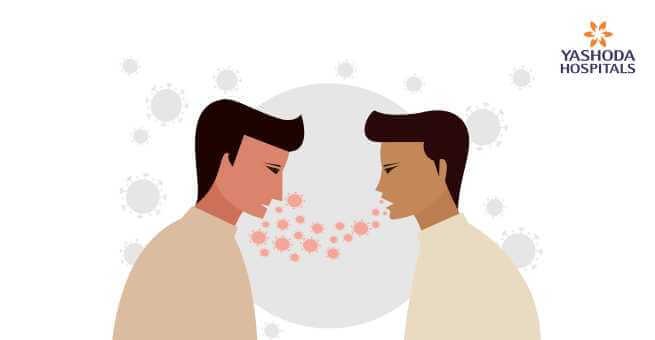
Viral fever is caused by the pyrogens produced in the body when it fights the viral antigens as a defensive mechanism. Causes of viral fever can vary depending upon the type of virus attacking the body.
- Viral fever can be transmitted from one person to another via coming in close contact with the host (the one with active viral infection) or a carrier (the one who might not have the symptoms of the viral fever but is carrying the virus).
- Viral fever can also be transmitted by inhaling the virus-containing droplets from an infected person. Seasonal flu is the most common cause of viral fever.
- Sharing food or drinks with a virally infected person can also transmit viral fever.
- Contaminated water is also a contributory source of viral fever, especially in children.
- Viral fever also spreads by coming in contact with the bodily fluids of an infected person during sexual intercourse.
- Insect (mosquitos and ticks) and rodent (mice) bites can transmit the virus from these animals/insects to humans that cause viral fever. Dengue, yellow fever, Zika, and Chikungunya are viral infections transmitted by animals/insects.
- Exchange of blood with an infected person during drug abuse can also lead to viral fever.
Get the right treatment for viral fever and stay healthy with our specialized care.
How is a viral fever diagnosed?

Due to the similarity in viral fever and bacterial fever symptoms, it could be challenging to rule out the possibility of a bacterial infection. Also, a bacterial infection could occur as a secondary infection to viral fever. So your doctor would ask you some basic questions to understand the timeline and the severity of the symptoms. These questions would help the doctor assess the history of the viral fever, health status, improvement or worsening of symptoms and need for additional testing.
Further, he could order diagnostic tests such as blood tests, urine tests, sputum tests, swab tests, or specific viral antigens or antibody tests. You would probably be asked to get your white blood count (WBC) counts tested to confirm the diagnosis of viral fever.
The doctor could also recommend testing for Dengue, Malaria, Typhoid, or Chikungunya to rule out these infections. The doctor could also advise undergoing a CT scan or chest X-ray to rule out any other infection in case of severe infection.
Overall, diagnosis is based on symptoms, so you should report correct information about your health condition. You can consult our specialist doctors, who provide an expert medical diagnosis with minimal required lab tests.
How are viral fevers treated?

Viral fever treatment depends on the type of viral infection and the severity of the symptoms. Usually, doctors try to prescribe medicines such as paracetamol or ibuprofen for low-grade viral fever. Lukewarm baths and drinking electrolyte solution also help treat muscle aches, fatigue, diarrhoea, etc.
For high-grade fever, your doctor might prescribe a high dose of paracetamol to be taken more frequently (every 4-6 hours) to alleviate the discomfort. The treatments prescribed should not be discontinued without consulting your doctor. Paracetamol can be injected intravenously to reduce the temperature and bring it closer to the normal range for severely ill patients.
Your doctor might also prescribe some antibiotics to prevent any secondary bacterial infections, and they should also be taken at the dose, frequency and duration as specified.
People often self-medicate and go for over-the-counter (OTC) viral fever medicines to relieve the symptoms. Still, self-medication can be dangerous as it can lead to severe complications or the usage of incorrect medicine. You should consult a doctor and seek immediate medical care for proper diagnosis and appropriate treatment strategies. Further, we recommend you reach out to our medical consultants for the best viral fever treatment options.
Dos & Don’ts during viral fever

Dos
- Take proper rest.
- Drink plenty of liquids to prevent dehydration and maintain electrolyte balance.
- Take your fever or pain-killer medication at prescribed time intervals to avoid pain or discomfort.
- Take your antiviral medicine religiously as prescribed to clear the virus load quickly.
- Eat healthy and light meals that are easy to digest and nutritious.
- Add immunity boosters to your diet such as vitamin C, zinc, honey, etc.
- Maintain personal hygiene and keep your surroundings clean.
- Properly dispose of used tissues that contain your secretions.
Don’ts
- Do not self-medicate without proper medical knowledge of medications and dosages, leading to harmful consequences and worsening the disease.
- Do not take antibiotics unless prescribed by your doctor. Unnecessary use of antibiotics leads to antibiotic resistance, and you might require stronger antibiotics next time you get an infection.
- Do not stay in extremes of temperature such as too cold or too hot because extremes make your body more sensitive and lead to chills or sweats.
- Do not use too many layers of clothes or blankets if you feel chills.
- Do not share your handkerchief, clothes, towels, food, or beverages, as this will inhibit the further spread of the infection to people in contact with you.
How to prevent viral fever?

The famous proverb “prevention is better than cure” applies to viral fever as well. Viral infections cause viral fever, so staying away from viral infections will prevent you from contracting a viral fever.
- The first and foremost prevention trick is maintaining personal hygiene. This includes frequently washing your hands, sanitising your hands, avoiding touching your face or nose, changing your clothes daily, disposing of used tissues, etc. Avoid sharing your food, drinks, and belongings with other people to prevent the spread of the virus and viral fever.
- Eating healthy and warm food will help reduce the chances of viral fever as viruses tend to grow in cold or normal temperatures. Further, you can add immunity boosters and nutritious supplements to your diet to up the ante against viral infections.
- Getting flu vaccinations is another important preventive measure to prevent catching the virus and consequent viral fever annually.
- Using mosquito repellents, mosquito nets, and wearing clothes with full-body coverage will help protect you from mosquito bites that could cause viral infections such as dengue, etc.
- You should seek medical care as and when required as early diagnosis and treatment aids in better management of viral fever. Further, you can consult our team of medical doctors specialising in managing viral fever for preventive tips.
When Should I see a doctor?
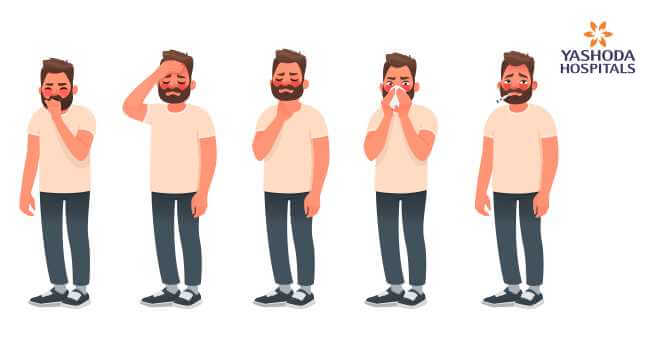
The majority of the viral fevers are self-limiting and are not associated with high-grade fever or severe symptoms. However, if the temperature is more than 103°F, you should seek medical help and consult a doctor.
Similarly, if rectal fever in babies is more than 100.4°F, medical care should be sought. Additionally, if viral fever in babies lasts more than two weeks, even if the symptoms are mild, you should consult a doctor. This could be indicative of a severe underlying infection.
Additionally, if you or your child experiences any of the following symptoms, you should seek medical attention and see a doctor:
- Dyspnea (breathing difficult)
- Chest pain
- Severe headache
- Severe abdominal pain
- Frequent vomiting or loose motion
- Worsening of rashes
- Seizures or convulsions
- Confusion
- Stiffness of neck
- Severe dehydration
It is advisable not to assume and self-medicate. You should get the symptoms diagnosed accurately so that a defined line of therapy can be given accordingly. Delay in the diagnosis or doctor consultation could have prominent adverse effects and cost you severely. The best approach would be to see a doctor as early as the first symptoms appear to get an early diagnosis and proper treatment. We recommend you consult our team of medical doctors for expert diagnosis and the best treatment options for you.
Types of viral fever
The classification of the types of viral fever depends on various factors such as mode of transmission, the severity of the disease, the body organ affected, etc. Viral fever-type will also depend on the type of the virus causing the infection. Broadly, viral fever can be classified as:
- Respiratory viral fever: This viral infection is associated with flu-like symptoms such as cough, cold, sore throat, fever, or body aches. Examples include viral fever caused by the common cold, adenovirus, respiratory syncytial virus infection, severe acute respiratory syndrome (SARS) virus, Covid-19 virus and parainfluenza virus infection.
- Gastrointestinal viral fever: This viral infection is associated with gastrointestinal disturbances such as diarrhoea, abdominal pain, vomiting, etc. Examples include viral fever caused by rotavirus, norovirus, astrovirus, and a few adenoviruses.
- Exanthematous viral fever: This viral infection is associated with skin rash and skin eruptions. Examples include measles, chickenpox, chikungunya, rubella, smallpox, etc.
- Hemorrhagic viral fever: This viral infection is associated with damage to the circulatory system. Examples include dengue fever, Ebola, Lassa fever, yellow fever, etc.
- Neurologic viral fever: This viral infection is associated with damage to the nervous system. Examples include rabies, polio, viral encephalitis, and viral meningitis.
The majority of these viral fevers resolve are treated symptomatically. You can consult our medical experts on types, symptoms, causes, prevention, and treatment options.
FAQ’s
What are the types of viral fever?
Types of viral fever can vary depending upon the viral infection and the body organ affected. Viral fever can broadly be classified into the following:
- Respiratory viral fever – associated with flu-like symptoms such as cough, cold, sore throat, fever, or body aches
- Gastrointestinal viral fever – associated with gastrointestinal disturbances such as diarrhoea, abdominal pain, vomiting, etc
- Exanthematous viral fever – associated with skin rash and skin eruptions
- Hemorrhagic viral fever – associated with damage to the circulatory system
- Neurologic viral fever – associated with damage to the nervous system
What is the test for viral fever?
Usually, the doctor will assess your symptoms and history before ordering any test for viral fever. Blood, saliva, or urine tests may be ordered to investigate any abnormalities. White blood cells are specifically investigated. You may also need to undergo a swab test and specific antigen or antibody test depending upon the symptoms of the viral infection. In addition, the doctor may ask you to get tested for dengue, malaria, typhoid, etc., to rule out the possibility of these infections. You can consult our medical team for a proper diagnosis and the tests required.
Which antibiotic is best for viral fever?
Usually, doctors do not prescribe antibiotics for viral fever as antibiotics are effective against bacteria but not viruses. Viral fevers are managed by symptomatic treatment or antiviral drugs for severe infections. However, your doctor might prescribe an antibiotic to avoid any secondary bacterial infection, and the same should be taken at the prescribed dose and frequency. Antibiotics should not be self-administered as they could cause acidity, liver damage, or other serious side effects. We recommend you consult our team of medical experts for the best treatment approaches with minimal side effects.
How many days of viral fever last?
Viral fever duration will depend upon the cycle length of the causative virus. Usually, the viral fever lasts for 3-5 days, with a few symptoms resolving in another couple of days. However, for some of the viruses, the cycle could be long, and it might take up to 2 weeks for the viral fever to subside. However, if the symptoms persist even after two weeks, you should consult a doctor. We recommend you consult our medical experts for the best advice on viral fever diagnosis and treatment.
What is the fastest way to recover from viral fever?
You should try the following to recover from the viral fever quickly:
- Take proper rest and do not exert yourself.
- Try to get as much sleep as possible.
- Maintain personal hygiene and don’t share your personal belongings with anyone.
- Stay hydrated – take plenty of oral liquids.
- Try to ease your breathing by using extra pillows, warm baths, or using local decongestants.
- Eat healthy and light food.
- Take medicines as prescribed.
- Get a flu vaccination.
- Add immunity booster to your diet.
- Use honey to soothe your throat.
Why does viral fever increase at night?
Viral fever usually increases at night, or the symptoms get worse. The cortisol levels in the blood decrease at night, which is readily sensed by the immune system and white blood cells start to fight the viruses in your body. As a result, more pyrogens are released into your body, elevating the body temperature, and the fever goes up. This could also be associated with typical fever symptoms such as chills and hot flashes. For more information on viral fever, reach out to our medical experts.
How do I know if my fever is viral or bacterial?
Although there are common symptoms between viral and bacterial fever; but your doctor will be able to differentiate between these fevers on the following observations:
- Fever and the symptoms could last more than 14 days in a bacterial infection, while viral fever usually subsides within two weeks.
- Fever gets worse after a few days into the bacterial infection rather than improving, as in the case of viral fever.
- Fever is usually higher in bacterial fever compared to viral fever.
A proper diagnosis and tests are required to rule out other possibilities and start appropriate treatment. You can reach out to our consultants for diagnosis and treatment after that.
Is viral fever common?
Viral fever is quite common, especially during the season change. Viral fever is contagious and spreads quickly from one person to another through close contact. Viral fever is even more prevalent in children and immunocompromised people as they have low immunity, and viruses can easily invade their bodies. Viral fever due to a common cold or flu spreads quickly in babies and kids as they play together and in close contact. You can reach out to our medical experts to understand the causes of viral fever and prevention tips.
Who is prone to viral fever?
The one with the following risk factors is prone to contact viral fever:
- Stay with an infected person.
- Not maintaining personal hygiene.
- Travel to an area with prevalent viral fever.
- Share workspace with a sick person.
- Have unprotected sex.
- Share needles or syringes for drugs.
- Stay close to infected animals or slaughterhouses.
- Your living space is infested by mosquitoes, rats or other rodents.
- People with a weak immunity (due to any prolonged illness or long-term use of oral corticosteroids), the elderly, and kids.
Difference between Viral Fever and Corona?
Viral fever vs corona: both can have common symptoms as Corona is also a viral infection (COVID-19). However, there are differences between viral Fever and Corona:
- COVID-19 is more severe than viral fever and can lead to hospitalisation or fatal outcomes.
- COVID-19 spreads more easily than viral fever, and the carriers could be contagious for a long time.
- Symptoms of COVID-19 could take more time to show up (within 2-14 days, usually after five days) as the virus cycle is longer as compared to viral fever (within 1-4 days).
Is viral fever contagious?
Viral fever is contagious as it can spread from one person to another through close contact. The most common transmission of the virus is through respiration, as the infected person can quickly spread the infection to people coming in close contact. The viruses are present in the microscopic respiratory droplets. Another mode could be through sharing personal belongings, clothes, towels, handkerchiefs, etc. Viral fever can also spread by touching contaminated surfaces and bodily fluids such as saliva or semen.
How to cure viral fever?
Generally, doctors follow a symptomatic approach to cure viral fever as the symptoms will subside once the virus cycle is completed. It includes alleviating the symptoms such as fever, pain, cold, sore throat, cough, etc., by common medications. In a few cases, antiviral treatment may be required. Along with this, proper rest and sleep are also crucial to help your body recover. In addition, eating healthy food, maintaining personal hygiene, and using warm baths will help you recover faster and relieve the symptoms. Further, we recommend you consult our medical doctors for the best treatment options.
Do platelets decrease in viral fever?
Viral fever is usually associated with low immunity and abnormal blood tests. Platelets are also decreased in viral fever as the viruses affect the mechanisms of platelet functioning. Viral fever acts to reduce the production of the platelets and increase the destruction of the platelets. This could lead to a dip in platelet count to 90000 to 1 lakh (normal range: 1.5-4.5 lakhs). In dengue fever and Chikungunya fever, platelets could further dip below 50000 and have a fatal outcome.
Why does viral fever come?
Viral fever is a common symptom when a variety of viruses attacks your body. Viral fever is the result of your body’s defensive mechanism. When viruses attack your body, your defence system gets activated and fights with the virus to kill the virus and reduce its load. During the process, pyrogens are released in your body, which increases your body temperature beyond the normal range, leading to a presentation of fever. You can consult our team of medical doctors to understand the causes of viral fever and prevention tips.
What to eat in viral fever?
Viral fever usually causes gastrointestinal disturbances such as diarrhoea, vomiting, or abdominal pain. A light and healthy diet should be eaten that is easy to digest and provides nutrition. You can include plenty of liquids or beverages in your diet to maintain electrolyte and energy levels. A diet rich in nutrients and immunity boosters will provide the best nutrition and protection against viral infections. Further, you can reach out to our specialist doctors for the best food choices to eat in viral fever.
What are the symptoms of viral fever in Kids?
Viral fever in kids could present with high-grade fever, cough, cold, chest congestion, abdominal pain, muscle pain, diarrhoea, or fatigue. The fever experienced by kids could also have a pattern of occurrences that repeat at regular intervals and could also be associated with chills. Viral fever usually doesn’t respond to medicines, and fever will go up until the virus cycle is completed. Skin rashes are pretty common in kids following a viral fever and could last for a few days even after the fever has resolved.
Does oxygen level drop in viral fever?
Viral fever could be associated with decreased oxygen levels (oxygen saturation, SpO2). As the body temperature rises, oxygen saturation drops, reducing oxygen supply to the lungs and breathing difficulties or lung damage. The oxygen saturation should not dip beyond 94% for a prolonged duration. Otherwise, it could lead to some significant damage to lung tissues, and an oxygen mask may be required to meet the oxygen demand to keep the lungs intact. You can monitor your oxygen saturation levels with a pulse oximeter. For more information on viral fevers and management, consult our medical experts.
References:
- https://www.cdc.gov/flu/symptoms/flu-vs-covid19.htm
- https://www.cdc.gov/vhf/index.html
- https://www.who.int/news-room/q-a-detail/how-can-i-avoid-getting-the-flu?gclid=Cj0KCQjwt-6LBhDlARIsAIPRQcKlph0fPRhkmUU-7f0ndHgB6vCL7dzBy7eNuWGKRuN2xKc2TRe1pJgaAmYBEALw_wcB
- https://www.cdc.gov/flu/index.htm
- https://www.euro.who.int/__data/assets/pdf_file/0020/153380/flu_case_management.pdf%3Fua%3D1
- https://www.who.int/emergencies/diseases/novel-coronavirus-2019/question-and-answers-hub/q-a-detail/coronavirus-disease-covid-19-similarities-and-differences-with-influenza
- https://www.dukehealth.org/blog/it-bacterial-infection-or-virus
- https://www.ncbi.nlm.nih.gov/pmc/articles/PMC4270245/
- https://pubmed.ncbi.nlm.nih.gov/25962244/










